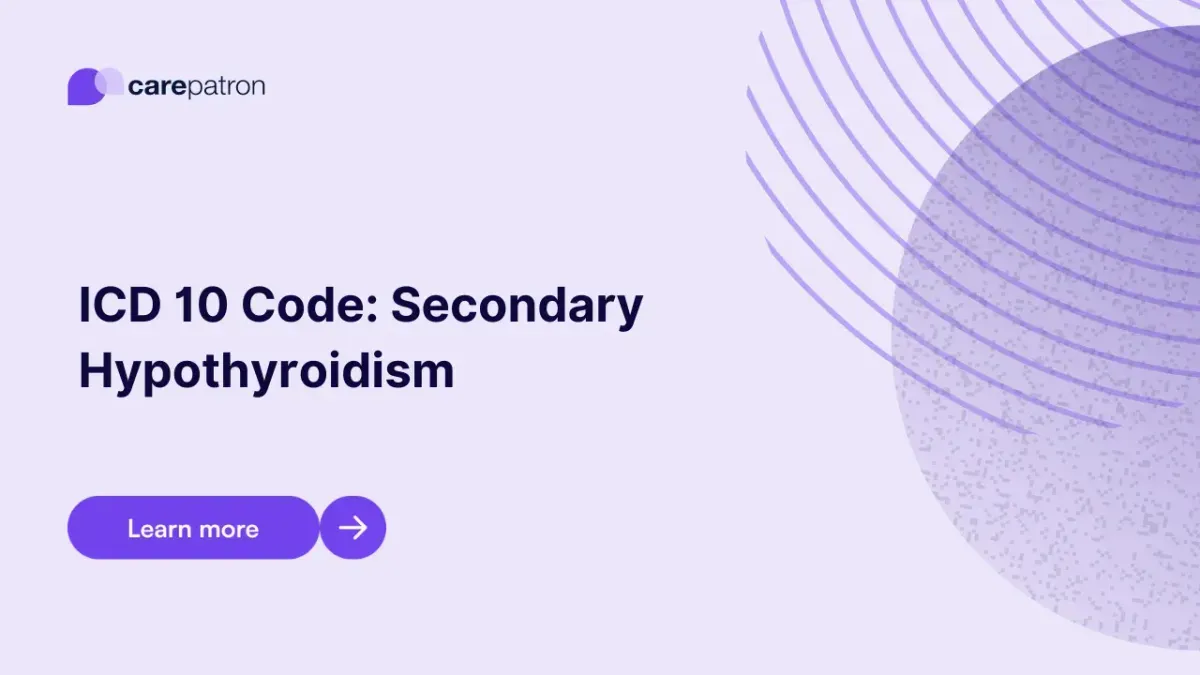
Secondary Hypothyroidism ICD-10-CM Codes
Discover the specific ICD-10 codes for diagnosing and treating secondary hypothyroidism that follow coding guidelines for accurate medical billing.
Use Code
Commonly asked questions
Use a secondary hypothyroidism ICD-10 code when a confirmed diagnosis is made based on clinical evaluation and laboratory findings showing central (not primary) origin. Document the underlying cause, such as a tumor, surgical history, or medication-induced suppression.
Treatments include thyroid hormone replacement, primarily levothyroxine, and addressing the root cause, such as surgical intervention for pituitary tumors or stopping causative medications. Long-term endocrine follow-up is recommended.
This code indicates a form of hypothyroidism stemming from inadequate TSH production due to pituitary or hypothalamic dysfunction. It informs both clinical management and insurance billing by identifying the condition’s central origin.
EHR and practice management software
Get started for free
*No credit card required
Free
$0/usd
Unlimited clients
Telehealth
1GB of storage
Client portal text
Automated billing and online payments
